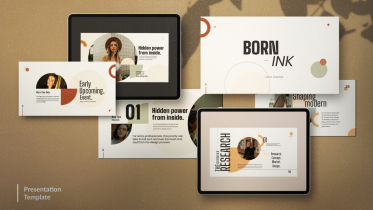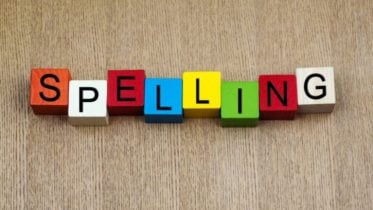
Learning how to write blogs and Wikis can be motivational and teach students how to write for different purposes, tasks and audiences. For example, writing a personal blog is different from writing a well-researched Wiki page. Learning writing skills, how to use media in different situations and how to collaborate with peers is great preparation for college.
What is a Wiki?
Wikis are sets of web pages that become online documents. Users can add, delete or modify content directly from the web browser. Unlike blogs, they typically consist of more static content agreed upon users over time and updated when necessary. They are good for collaborating to produce a comprehensive educational resource for others.
Wikis encourage users to collaborate and are therefore useful for educational activities such as working together on assignments and group presentations. When preparing online presentations, students find it helpful to make use of online presentation maker tools.
Advantages of Wikis
Teachers and students can collaborate in the design and implementation of Wiki pages. Date and time stamps make monitoring compliance with deadlines easy.
Wiki content is available to users at all times, no matter where they are located. Wikis support many media forms, such as photos, videos, music and URLs.
According to a professional writer service, as an alternative to paper-based assignments, Wiki assignments show revisions and it is possible to revert to former versions or undo changes. All users can view changes when doing a group assignment and this allows them to do some peer review and editing.
Benefits of writing Wikis
As per various thesis writers on education, when writing Wikis, students can collaboratively become the authors of knowledge rather than just consuming it. When they exercise more control over the outcome of an assignment or project, they tend to learn more.
Wikis are an excellent resource for developing critical thinking, learning from peers, and becoming better contributors in group settings.
Higher learning skills: Writing Wikis promotes higher learning skills, such as problem-solving and critical thinking.
Active learning: Students can participate in writing and discussions in an interactive learning experience.
Digital literacy skills: Students can start to develop the digital literacy skills they will need in the workplace.
Collaborative learning: Students work together to solve a problem or complete a project.
Classroom Wiki ideas
Wikis can be very useful in a classroom setting, especially where material changes constantly or there are always new developments.
- Research projects – when students gather information and create their own Wiki entries on various topics, these resources can become part of a library they can access time and time again and update when necessary.
- Student e-portfolios – an e-portfolio is an electronic collection that shows a student’s learning journey over time. Students can collect evidence of their achievements that best demonstrate their skills. They can ask peers or teachers to evaluate their portfolios and offer feedback.
- Class summaries – writing class summaries on a classroom Wiki can be a great way to encourage students to write and edit collaboratively.
- Discussion activities – when students can think carefully about their answers and post them when they are ready, it improves the quality of discussion and participation.
- Creating collaborative stories – as changes are tracked, teachers can see how much each student has contributed.
- Peer feedback – writers can edit work, comment on inaccurate information, and share their areas of expertise. Becoming experts on Wiki pages could boost the self-esteem of students and help them to recognize their strengths.
- Resource repository – A Wiki can provide a central location where students can access assignments, handouts, notes and reminders.
What is a blog?
In their earliest form, blogs were called “web logs” and provided a way of annotating shared links found on the web. Today blogs serve many different purposes, from commercial blogs promoting products to opinion blogs on subjects like politics or science.
Bloggers usually write frequent posts with their perspective or personality coming out through their writing. Readers can comment on posts and this often provokes other readers to post comments in response.
Advantages of blogs
Blogs are easy to set up and access, support various media types such as photos and videos, and offer far more flexibility than when writing paper assignments.
Bloggers can write freely and express themselves creatively because editing and formulating the content is easy. Students can also organize their content by using categories so they can find it easily again.
It is possible to using blogging tools geared towards student and classroom use that give teachers more control so they aren’t used for bullying or inappropriate comments.
Benefits of writing a blog
Writing stories on a blog tends to be high interest to students and can help to motive reluctant writers.
Develop writing skills: Blogging offers a great way to students to express their thoughts. They can hone their writing skills and develop more confidence in them.
Give feedback: Writing a blog can be an ideal way for students to criticize, question and react to course materials or readings.
Brainstorm: Writers can brainstorm ideas and stimulate discussion with readers. This can expand their learning beyond the single instructor/student relationship.
Gain transferable skills: Students learn how to write for a wider audience, how to use applications and learn some HTML.
Classroom blog ideas
- Give writing prompts for creative writing on blogs. Knowing they’re writing their stories for an audience can be a good motivation for students.
- Writing reviews of favorite movies or books can open up discussions to assess what makes them successful and how to improve them.
- Encourage persuasive writing about topics like healthy food versus junk food. Teachers and other students can post tips and comments under posts.
- Get students to gather information on a specific topic and then write it in their own words in a blog, summarizing what they have learned.

A final word
Blogs and Wikis can be invaluable educational resources. As students already participate on social media, in chat rooms and may blog as a means of communication and social interaction, it makes sense to harness these technologies to improve their writing skills.
Author Bio:
Susanna Balashova works in the marketing field and is a known name in the corporate sector owing to her quick rise in the ranks. She is extremely talented and loves on takes on challenges head-on. She contributes regularly to essay writer service and writing services reviews as a part-time writer. Reach out to her on Twitter and Linkedin.
Images: Freepik.com






